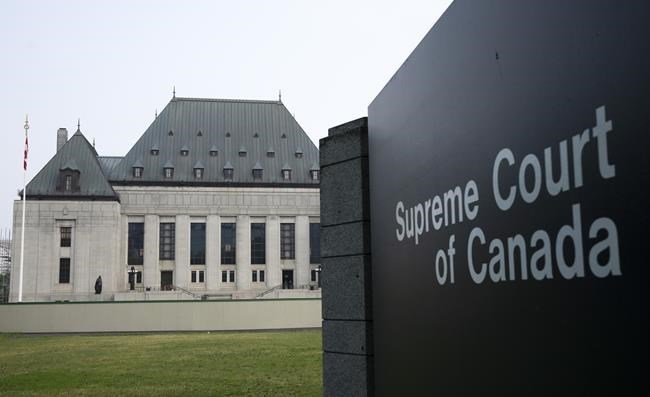The Supreme Court of Canada is set to hear an appeal of a ruling that struck down third-party election advertising rules in Ontario that limited spending.
The law in question added more onerous restrictions to the amounts that third parties, such as unions and special interest groups, are allowed to spend in the lead up to an election, and the Court of Appeal for Ontario found it unconstitutional.
Ontario sought leave to take the case to the highest court and the Supreme Court agreed Thursday to hear the case, but as is standard practice, did not give reasons for that decision.
Before 2021, third parties in Ontario were allowed to spend up to $600,000 on advertising in the six months before a provincial election call, but that year the government stretched that restricted spending period to one year, while not increasing the amount.
The Progressive Conservative government argued the extended restriction was necessary to protect elections from outside influence, but critics said it amounted to the government trying to silence criticism ahead of the 2022 provincial election.
The law was found unconstitutional on free speech grounds, so the government reintroduced the provisions using the notwithstanding clause to guard against constitutional challenges, but several third-party groups successfully challenged the reintroduced provisions under a different section of the Charter.
The Appeal Court struck down that new law on the basis of violating a voter's right to meaningful participation in the electoral process, which isn't subject to the notwithstanding clause, and gave the government one year to create new, Charter-compliant legislation.
But Ontario's attorney general sought an appeal to the Supreme Court of Canada and his office welcomed the Supreme Court's decision to hear the case.
"Our position remains that third parties and special interest groups with deep pockets should have limitations on how much they can spend to influence elections," spokesperson Andrew Kennedy wrote in a statement Thursday.
"We can’t have American-style super PACs with unlimited funding, no rules, and no accountability interfering in our democratic process."
Prior to a 2017 law enacted by the Liberal government at the time, there were no limits on third-party advertising in Ontario. In the 2014 election, third parties spent $8.64 million, which amounted to 17 per cent of all election spending.
Unions were some of the largest third-party advertisers. The Working Families Coalition, known for its anti-Tory ads, spent $2.5 million during the campaign, with contributions from some of the province's biggest unions.
Lawyer Paul Cavalluzzo, who represented Working Families and the Ontario English Catholic Teachers' Association in the case, said the fact the Appeal Court ruling was a split decision probably made it more likely that the top court would agree to hear it.
"I'm disappointed but not surprised that leave was granted," he said in an interview. "It's probably the most important election case in decades."
Chris Glover, NDP critic for democratic reform, noted that the law was introduced in the lead up to a provincial election.
"I think it shows how little respect the Ford Conservatives have for our democratic rights," he said. "They were doing this one year out from the election and they were basically trying to impede or censor people who could pay for advertising that would criticize the government."
Karen Littlewood, president of the Ontario Secondary School Teachers' Federation, said the law amounted to muzzling Ontarians.
"I think it was an attempt to not have groups influencing elections, which I believe we're still part of a democracy, and that freedom of speech is still something that is protected for us," she said.
"Yet, when you have a government that perhaps doesn't want anyone to say anything against them, this is the type of legislation that's brought in, and it really inhibited the ability to speak during an election."
This report by The Canadian Press was first published Nov. 9, 2023.
Allison Jones, The Canadian Press




